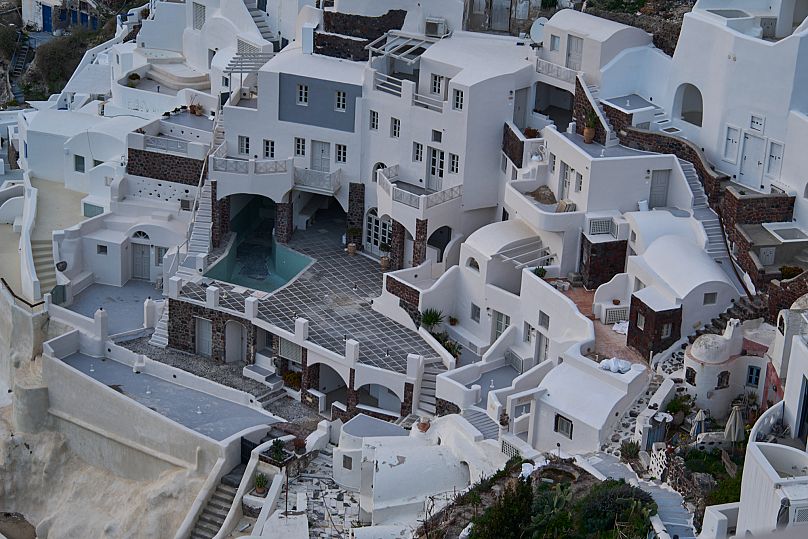The main street without many people, alleys that are not crowded with visitors; these are uncommon sights during the summer months in Santorini's capital, Fira.
For the first year since the COVID-19 pandemic, Santorini, one of the most popular Greek islands, is experiencing a decline in tourist traffic.
Earthquake activity on the island earlier this year deterred many international visitors from choosing it for their summer holidays.
In recent weeks, arrivals have been increasing, but the numbers are far short of the highs of previous years.
"In Santorini, available airline seats are down 26% from the beginning of the year to date. But the indications we have in terms of supply of seats are down in the range of 7%-8% for the summer, so we expect a result with losses of 10%-15%," said president of the Association of Greek Tourism Enterprises (SETE), Yannis Paraschis.

The president of the Santorini hoteliers, Antonis Pagoni, told Euronews he estimates a further fall in tourist traffic and warned that the effects will spread throughout the entire Greek economy.
"The president of SETE talked about airport arrivals," he added, "but I will unfortunately say that overall arrivals will be down about 20%-25%. Right now we are moving at -25% to -30%. It's a huge reduction in a destination like Santorini that attracts more than 3 million visitors. You know, it's 10% of Greek tourism. We are not sure if Greece can afford to lose that revenue."
Offers for last-minute tourists
The island's hoteliers are offering discounts on room rates to attract last-minute tourists.
Almost every day three cruise ships stop in Santorini and thousands of visitors get off to admire the island's sights.
The cruise tax, which will finally start to be collected from July, is not expected to affect this year's cruise ship arrivals.
At the same time, the cost of living crisis affecting many parts of the world is also leaving its mark on Santorini.
This year, visitors are more restrained in their spending and this can be seen not only in hotel bookings but also in the alleys of the Greek islands.
According to shop owners, tourists this year are spending significantly less than in previous years, not only on dining but also on buying souvenirs.







